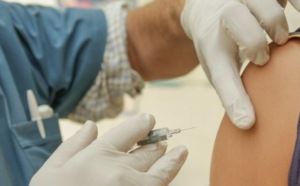News
Partially vaccinated account for a fifth of all fresh corona cases
This article is more than 4 years old.
Concerns mounting that current rules, which enable people in Denmark to acquire a corona pass 14 days after their first jab, need to be revised

Could jab number four be on the way? (photo: Pixabay)
Some 22 percent of all those infected with the Delta strain of the coronavirus had received their first vaccination jab, leading to calls to only issue the corona pass to those who are fully covered.
At present, the corona pass is available to those who have received their first jab at least two weeks ago, thus enabling them to forego a PCR test (valid for 96 hours) or quick test (72) to access indoor venues where it is believed the Delta strain is passed on more easily.
Some experts are accordingly clamouring for a revision of the rules.
Delta a different matter
A Statens Serum Institut analysis of infections recorded between March 1 and July 13 reveals that the Delta variant, which now accounts for 91.2 percent of all new infections, is capable of infecting the partially vaccinated much more easily than previous strains.
“The first studies we carried out of the vaccines revealed that people tended to be pretty well protected after their first injection,” SSI official Palle Valentiner-Branth told DR.
“These were the studies that led to the corona pass being approved for those partially vaccinated. But now with the dominant Delta strain, we have a poorer protection rate.”
Protection of just 30 percent
Professor Jørgen Eskild Petersen from the Department of Clinical Medicine at Aarhus University finds it “worrying” that the partially vaccinated have accessed a corona pass, urging them to take matters into their own hands and only get the pass once they are fully covered.
“A very large British study demonstrates that AstraZeneca and Pfizer only provide protection of 30 percent after one jab,” he reasoned.
However, MPs from both sides of the political spectrum, Dansk Folkeparti and SF, concur that the rules should not be changed and that SSI and the Sundhedsstyrelsen health authority should hold firm with their guidelines and rules.
Nevertheless, they ultimately agree with Petersen that it is important to behave responsibly if you have only had one jab.










































